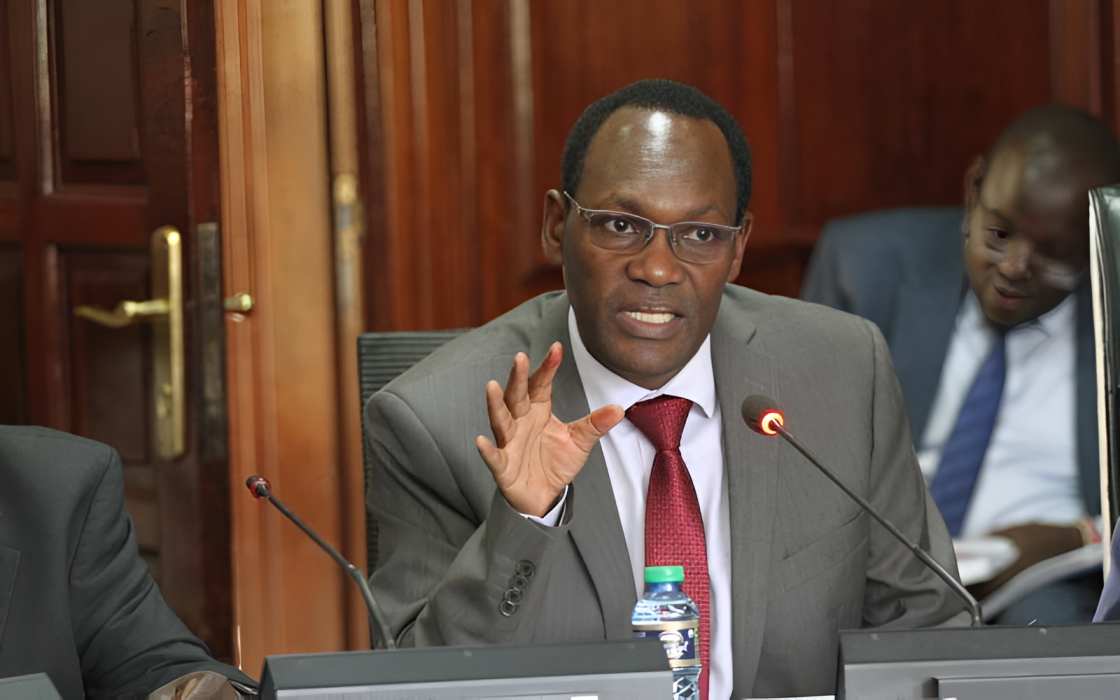Battle over budget autonomy pits Auditor General against Treasury

The Treasury, through Cabinet Secretary John Mbadi and Principal Secretary Chris Kiptoo, defended the current itemised budget structure, arguing it promotes transparency.
Auditor General Nancy Gathungu has criticised the National Treasury for rejecting a proposal that would allow her office to operate under a single-line budget, saying the decision undermines its independence and hampers timely audits.
The Treasury, through Cabinet Secretary John Mbadi and Principal Secretary Chris Kiptoo, defended the current itemised budget structure, arguing it promotes transparency.
"The current budget structure, where expenditures are clearly delineated, enhances accountability in the use of public resources," Kiptoo said in a submission to Parliament.
He added that there was no justification for changing the model. "The proposal for a single-line budget is unnecessary as there are no confidential expenditures in the OAG that would warrant such treatment."
But Gathungu responded swiftly, insisting that her office had proven its ability to manage funds responsibly.
"This office has consistently demonstrated fiscal responsibility," she said.
She argued that delays caused by seeking Treasury approval for every internal reallocation are affecting their ability to respond to urgent audit needs.
"A single-line budget would allow us to swiftly reallocate resources for emerging audits. It will give the office some degree of financial independence and facilitate effective responses in addressing emerging audit issues. Currently, we must seek approval for every reallocation, which delays critical oversight work."
Her remarks come amid a push from Parliament’s Budget and Appropriations Committee, which had in March 2023 unanimously directed the Treasury to adopt a one-line budget for the Auditor General’s office beginning with the 2025–26 financial year.
That directive now stands ignored, with the Treasury sticking to its position.
The Auditor General’s office plays a crucial role in ensuring public accountability. Its reports have exposed misuse of billions in taxpayer money at both the national and county levels.
But with limited control over its own funds, the office says it cannot act with the speed and flexibility required for such oversight.
Gathungu pointed out that the office is frequently called upon to conduct special audits by Parliament, many of which exceed standard audit fees from government agencies.
Without the ability to shift funds quickly, she said, critical oversight work is delayed.
The budget for the Auditor General's office this year is Sh8.69 billion—a marginal increase of Sh36 million—despite the growing audit demands, including new coverage of secondary schools and technical colleges.
Constitutionally, the office is supposed to operate independently.
Article 229 provides for that autonomy, yet the Auditor General says dependence on Treasury funding weakens that guarantee.
She recently told MPs that delays in exchequer disbursements affect her office in the same way as ministries and counties.
Civil society has also voiced concern.
A joint report by Africog and the Institute of Social Accountability said financial control by the Treasury has been used to punish oversight institutions.
"These institutions have become targets for budget reduction, harassment and reprisals for courageous exposures of national government and county-level misappropriation and mismanagement of funds," the report said.
According to the report, incomplete or blocked audit processes are becoming more common, and the pressure is mounting on institutions that hold government spending to account.
